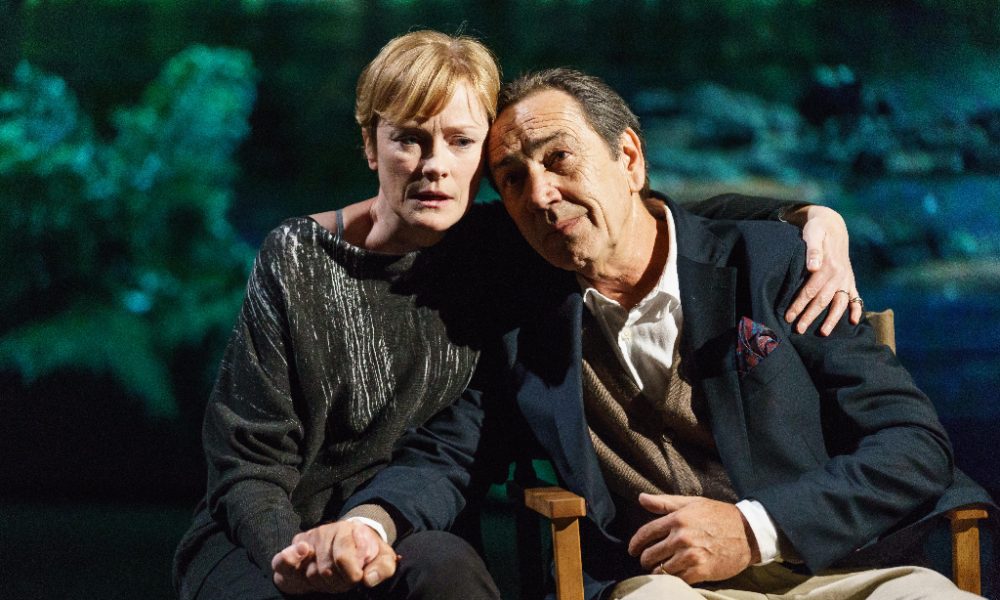Prism at Hampstead Theatre

With as much substance as the motes on a camera lens, Prism is a featherweight piece of theatre, with the same heft as the glass structure of the title. An intended showcase for Robert Lindsay, and a threadbare attempt to shoehorn weighty themes of mortality, disease and legacy into a conventional flashback/flash-forward structure, Prism crumbles under the weight of its own portent and pretensions.
Hampstead Theatre is no stranger to heritage pieces like this, casting a middle-aged television veteran in a central role and using that as the crux of both marketing and plot. But Prism, unpacking the life and times of Jack Cardiff, Oscar-winning cinematographer of The African Queen (amongst many, many others), stumbles in its attempts to elevate the subject matter (the tragic onset of Jack’s Alzheimer’s) into anything above a Lifetime soap opera.
The story alternates between Jack’s memories of on-set intrigue, where he gambles with Bogart, flirts with Hepburn, and establishes his visual “genius” (which, we are told many times throughout, absolves his philandering), with his present-day decline. In the present, he is failing to jot his memoirs down before the names of his loved ones slip entirely from his grasp. His son (Barnaby Kay) and wife (Claire Skinner) contest their legacy in his mind – he eking out an existence in the film industry under his father’s extensive shadow, she vying for his dwindling attention under the spectre of Katherine Hepburn.
While this scenario is ripe with promise, the simplicity of Terry Johnson’s script undermines the poignancy of Cardiff’s disease. In Prism, we are offered yet another depiction of man forgiven for his sins purely by merit of his talent. The criss-crossing timelines, weighty subject matter, and borderline melodrama likewise demand a deft touch. Instead, Lindsay doesn’t so much pirouette as stumble through the abrupt changes in mood demanded by the baggy script. His homilies about life, memory and family come thick and fast, each loosely tithed to some cinematic metaphor that Hallmark would be proud of. We are supposed to care about Jack, and about his family’s final attempts to tether him to them, but the consistent signposting of emotion makes this incredibly difficult to do. Every feeling is writ large, spelled out very literally as though the audience is allergic to subtext or subtlety. And yet, simultaneously, Johnson makes it difficult for us to muster much sympathy for Cardiff. Alzheimer’s is a vicious, indiscriminate, horrifying disease, punishing the loved ones of its victim. But the loved ones, in this instance, already seem cowed to Cardiff’s ego, belittled by his vainglorious obsession with stars and icons (and inability to say the word chiaroscuro correctly). As such, Skinner et al are left with one-dimensional, thankless roles, that make Lindsay’s scenery-chewing that much more egregious. At times, when Lindsay is in full flight taking his camera to Rebecca Night’s reimaginings of Marilyn Monroe, Prism plays out like the sort of play-within-a-play we would see a character rehearsing in Extras, Ricky Gervais’s masterful takedown of pompous exercises precisely like this one. Cardiff, the theatre, and the audience deserve better than this.
Jonathan Mahon-Heap
Photo: Manuel Harlan
Prism is at Hampstead Theatre from 6th September until 14th October 2017. For further information or to book visit here.


























Facebook
Twitter
Instagram
YouTube
RSS